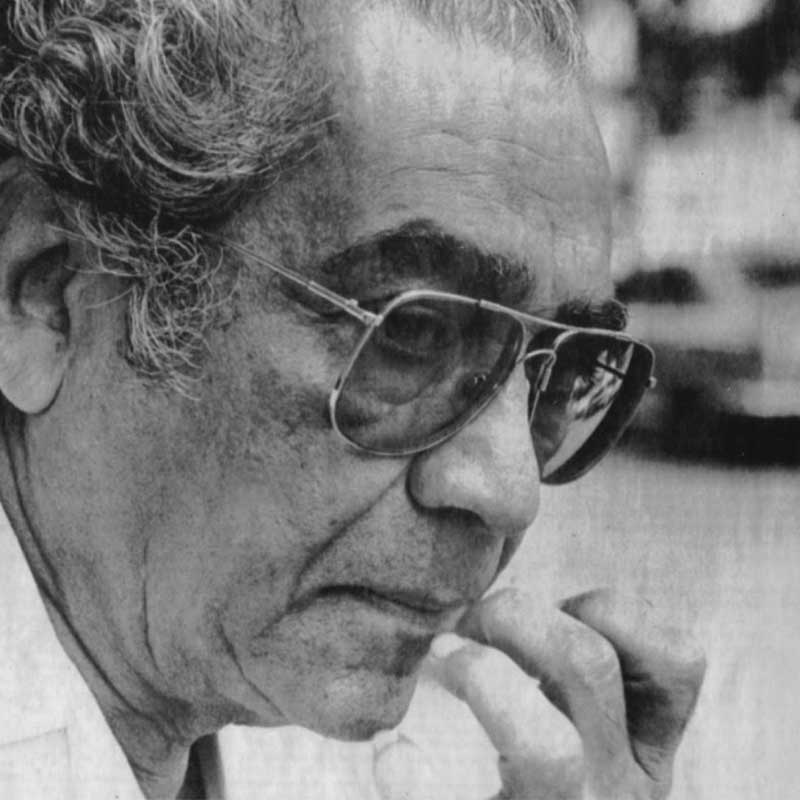
Akbar Padamsee (1928-2020) was born in Bombay. Following his art education at the J.J. School of Art, Padamsee went to live and work in France in 1951. He was a part of the first-generation post-independence Indian artists who sought freedom in Paris and London during the 1950s and 1960s. Though widely determined a modernist, Padamsee’s work continues to resist classification.
During his illustrious career, he explored a wide range of mediums, and managed to remain fiercely experimental and individualistic. His artistic oeuvre is a formal exploration of chosen genres: prophets, heads, couples, still-life, grey works, metascapes, mirror-images, and tertiaries; across a multitude of media: oil painting, plastic emulsion, watercolour, sculpture, printmaking, computer graphics, and photography.
Padamsee’s early portraits and landscapes in varied mediums of paintings, drawing, and etching demonstrate a quasi-spiritual style of working. His oils have been characterised by a deep intensity and luminescence while his drawings exude a serene grace. Renouncing the rich colour palette of his early years, he chose to paint in grey tones between 1959 and 1960, stating, ‘Grey is without prejudice; it does not discriminate between object and space.’
These monumental works have been widely recognised for their rich and poetic quality. Like all his works, his recent addition of computer graphics also shows his distinctive command over the use of space, form, and colour. Padamsee even made two short abstract films: ‘Syzygy,’ and ‘Events in a Cloud Chamber,’ where he animated a set of geometric drawings.
Since the 1970s, his work has been observed to alternate between two major genres: luminous metascapes (his signature works), and the human figure, which continues to imbue with an arresting presence. He had a deep and abiding interest in Sanskrit texts, a glimpse of which finds resonance in his statement on the sun-moon metascapes of the mid 1970s.
Padamsee’s works have been exhibited both in India and internationally. In 2010, he was awarded the Padma Bhushan by the Government of India. Other awards include a gold medal from the Lalit Kala Akademi (1962); the Rockefeller Fellowship (1965); the Kalidas Samman by the Government of Madhya Pradesh (1997); the Lalit Kala Ratna Puraskar (2004); the Dayawati Modi Award (2007); the Roopdhar award by Bombay Art Society (2008); and the Kailash Lalit Kala award (2010).